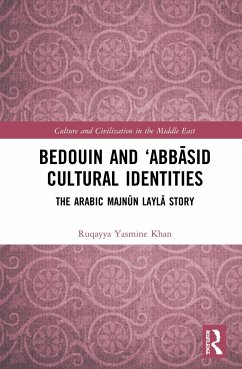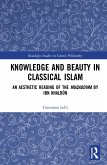This literary-historical book draws out and sheds light upon the mechanisms of "the ideological work" that the Arabic Majn¿n Layl¿ story performed for 'Abb¿sid urbanite, imperial audiences in the wake of the disappearance of the "Bedouin cosmos." The study focuses upon the processes of primitivizing Majn¿n in the romance of Majn¿n Layl¿ as part of the paradigm shift that occurred in the 'Abb¿sid empire after the Greco-Arabian intellectual revolution. Moreover, this book demonstrates how gender and sexuality are employed in the processes of primitivizing Majn¿n. As markers of "strangeness" and "foreignness" in the 'Abb¿sid interrogations of the multiple categories of ethnicity, culture, identity, religion and language present in their cosmopolitan milieus. Such "cultural work" is performed through the ideological uses of alterity given its mechanisms of distancing (e.g., temporal and spatial) and nearness (e.g., affective). Lastly, the Majn¿n Layl¿ love story demonstrates, in its text and reception, that a Greco-Arabian and Greco-Persian subculture thrived in the centers of 'Abb¿sid Baghdad that molded and shaped the ways in which this love story was compiled, received and performed. Offering a corrective to the prevailing views expressed in Western scholarly writings on the Greco-Arabian encounter, this book is a major contribution to scholars and students interested in Islamic studies, Arabic and comparative literature, Middle East and gender studies.
Bitte wählen Sie Ihr Anliegen aus.
Rechnungen
Retourenschein anfordern
Bestellstatus
Storno








